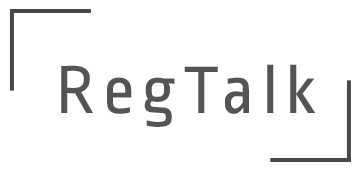
Banking and Finance
Financial compliance is the regulation and enforcement of the laws and rules in finance and the capital... View more
Japan’s SOX Regulations – Parallels to US
-
Japan’s SOX Regulations – Parallels to US
What does J Sox stand for?
J-SOX is the unofficial term for a part of Japan’s Financial Instruments and Exchange Law that was promulgated by the Japanese National Diet in June 2006 to ensure that corporate information is disclosed in a fair manner to investors. Responding to several corporate scandals, the government established J-SOX in order to enhance investor confidence in an organization’s financial statements by emphasizing the internal control that may affect the financial aspects of a company.
On February 15, 2007, the Business Accounting Council of the Japanese Financial Services Agency released the Standards for Management Assessment and Audit Concerning Internal Control over Financial Reporting and the Practice Standards for Management Assessment and Audit Concerning Internal Control over Financial Reporting (the “Standards”).
The Standards defines internal control as a process performed by everyone in an organization and incorporated in its operating activities in order to provide reasonable assurance of achieving four objectives:
(1) Effectiveness and Efficiency of Business Operations
(2) Reliability of Financial Reporting
(3) Compliance with Applicable Laws
(4) Safeguarding of Assets
To achieve the four (4) objectives of internal control, management is required to design and effectively operate a process in which six internal control components are in place.
(1) Control Environment
(2) Risk Assessment and Response
(3) Control Activities
(4) Information and Communication
(5) Monitoring
(6) Response to Information Technology In this newsletter, we will summarize the Control Environment and Risk Assessment and Response components.
The Internal Control Committee of the Business Accounting Council of the Japanese Financial Services Agency provided final Implementation Guidance for Management Assessment and Audit of Internal Controls over Financial Reporting (ICFR) in February 2007. The Implementation Guidance provides details to Japanese companies on how to implement a Management Assessment of Internal Control over Financial Reporting as required under the Financial Instruments and Exchange Law.
The Financial Instruments and Exchange Act became effective in April 2008 for roughly 3,800 companies listed in Japan, along with their foreign subsidiaries.
Forrester Research lists the following challenges and differences between J-SOX and SOX:
- Professional services. Japan has fewer than 10% of the number of qualified accountants than the US.
- Independence of auditors. While the concept of auditor independence exists in the Japanese market similar to the US, many Japanese firms can and will rely on the influence and recommendations of their audit firms.
- Audit automation is critical. With the extreme shortage of auditors compared to US per capita numbers, this shortage will increase the requirement and necessity for process efficiency in the internal audit process and software that can support these processes.
- Support of IT governance. In the November guidance regarding the scope of the J-SOX process, it is clear that IT controls are a central point of focus for J-SOX
The new law obliges all listed companies in Japan to strengthen internal controls to ensure full and accurate disclosure of financial information.
What are internal controls?
An internal control is a management structure, rule or work procedure designed to serve a specific purpose. The new framework requires company management to devise detailed procedures relevant to earnings reporting, and to ensure compliance.
Why did Japan need the new regulations on internal controls?
Japan has seen a spate of accounting frauds in recent years, including serious misstatements in Seibu Railway Co.’s financial reports, and illegal padding of profits by Kanebo Ltd.
These violations, both of which were discovered in October 2004, led to the delisting of these well-known firms and damaged public trust in financial reporting, prompting the Financial Services Agency to devise the new rules.
What are the requirements of the new legislation?
Listed companies will be required to produce “internal control reports” beginning in April 2008, along with their annual financial statements, to demonstrate the soundness of their financial practices.
A company representative must evaluate the effectiveness of the internal controls and submit a written statement attesting to the accuracy of the financial statements.
Both the financial statement and internal control reports will have to be approved by the external auditors.
If either the representative or the auditor judges the firm’s internal controls were inadequate and likely to result in major errors in the financial statement, the company will be required to report that its internal controls are flawed.
What are the penalties for publishing false internal control reports?
Individuals will face a maximum of five years’ imprisonment and a fine of up to 5 million yen. Corporations may be fined up to 500 million yen.
How many companies will be affected?
There are some 3,800 companies listed on Japanese stock exchanges that are subject to the new reporting requirements. But the number of firms affected is actually larger, because consolidated subsidiaries of the listed companies will also be subject to the legislation.
Sorry, there were no replies found.
